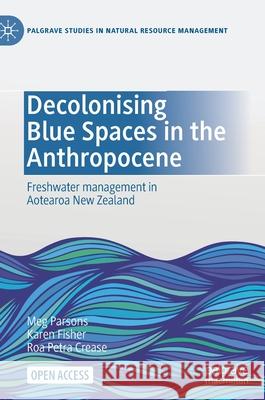Decolonising Blue Spaces in the Anthropocene: Freshwater Management in Aotearoa New Zealand » książka
topmenu
Decolonising Blue Spaces in the Anthropocene: Freshwater Management in Aotearoa New Zealand
ISBN-13: 9783030610708 / Angielski / Twarda / 2021 / 494 str.
Kategorie:
Kategorie BISAC:
Wydawca:
Palgrave MacMillan
Seria wydawnicza:
Język:
Angielski
ISBN-13:
9783030610708
Rok wydania:
2021
Wydanie:
2021
Numer serii:
000826644
Ilość stron:
494
Waga:
0.76 kg
Wymiary:
21.01 x 14.81 x 2.87
Oprawa:
Twarda
Wolumenów:
01
Dodatkowe informacje:
Glosariusz/słownik
Wydanie ilustrowane
Wydanie ilustrowane











